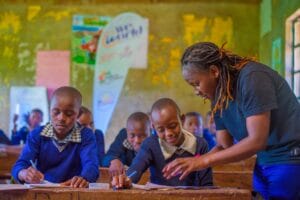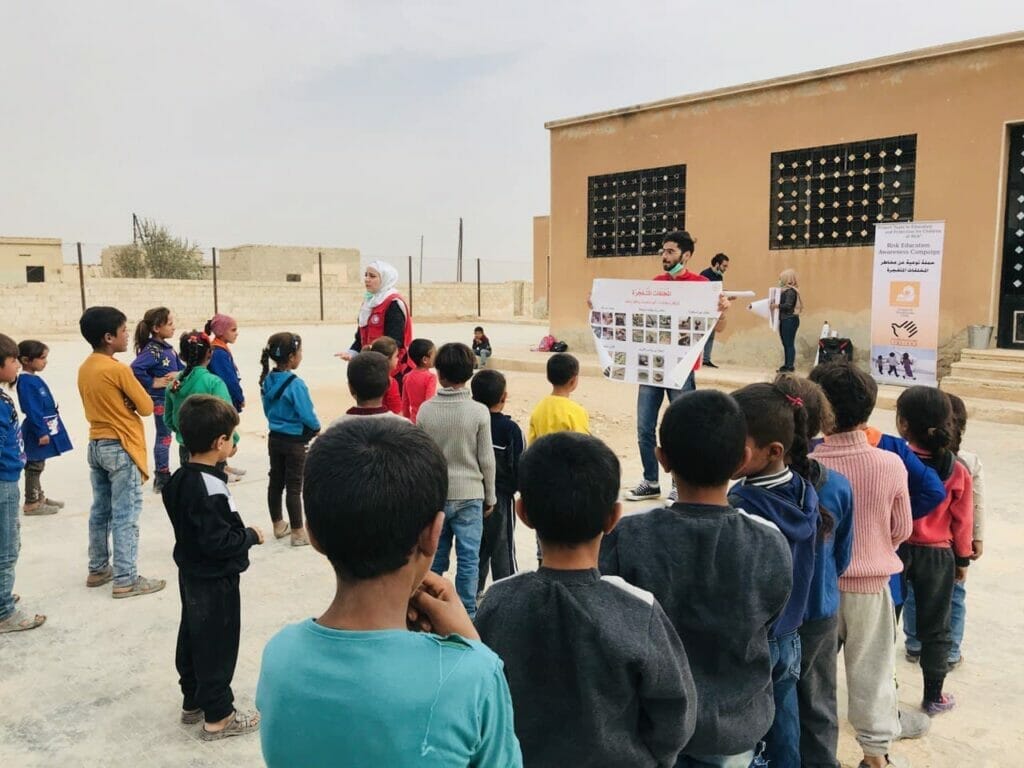
Activities such as farming, tilling or collecting scrap metal can be fatal in Syria. One in three communities lives in places contaminated by mines and unexploded ordnance, but the socio-economic crisis caused by Covid-19 has in recent years encouraged many more people to take risks to generate income.
"Large-scale education and awareness-raising on the risks created by mines and unexploded ordnance is increasingly urgent," says Stefania Piccinelli, Head of International Programmes at WeWorld-GVC on International Mine Awareness Day .
The latest figures speak of more than 10.2 million people at risk of an accident across the country, with 805 victims in 2021 alone. Many more, however, had non-fatal accidents. Of the survivors, 2 in 3 have permanent injuries and will need lifelong care.
“Unfortunately, this is a very real risk that affects the people we work with in the country," says Piccinelli. "The areas where we intervene (the governorates of Aleppo and Deir-Ez-Zor) have been hit hard by the conflict, and accidents involving mines and improvised explosive devices (IEDs) are very frequent.
IEDs are mainly found on farmland and roads, but also around schools, public facilities and hospitals. Among those who have accidents with mines," says staff working in the field, "there are many children who suffer serious injuries and mutilation. This, among other things, means great difficulty in returning to school because many facilities are not adequate to accommodate students with disabilities: there are no ramps or adequate toilets. Yet the right to education should be guaranteed to everyone". Generally, children get into accidents while they are playing: educating teachers and children about the risks they face is therefore necessary. This is why WeWorld-GVC - in Syria since 2011 with a focus on the education sector - has decided to add a "Risk Education" component in recent years to raise awareness and train teachers, girls and boys on the risks of mines and unexploded ordnance.
Over the past 4 months, in coordination with the local Ministry of Education, WeWorld-GVC has organised Risk Education trainings for 350 teachers, providing information on how to recognise unexploded ordnance, how to act to reduce the consequences of accidents, and how to discuss these sensitive topics with children. Over the course of 2022, more than 18,000 students will be involved in an awareness campaign, in the hope that learning more about the topic and having the opportunity to discuss it with their teachers will help them avoid this dangerin their everyday lives.
"When we organise the trainings," concludes the staff, "the main message we try to convey is that they should always keep their attention high, even while playing. We always recommend responsibility and to watch out for strange objects they may find on the street. We are very happy when we know that the children give their parents the same advice that we give them: it is a demonstration of a system that can help to improve things".



